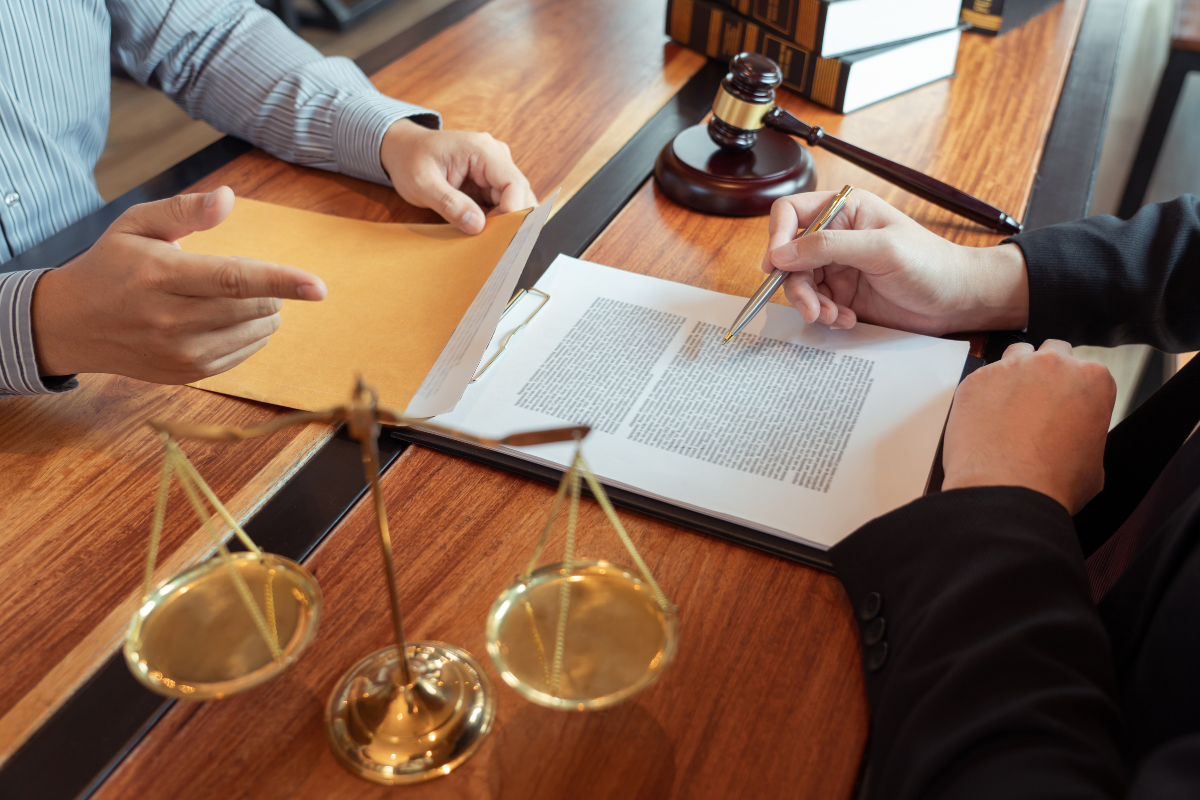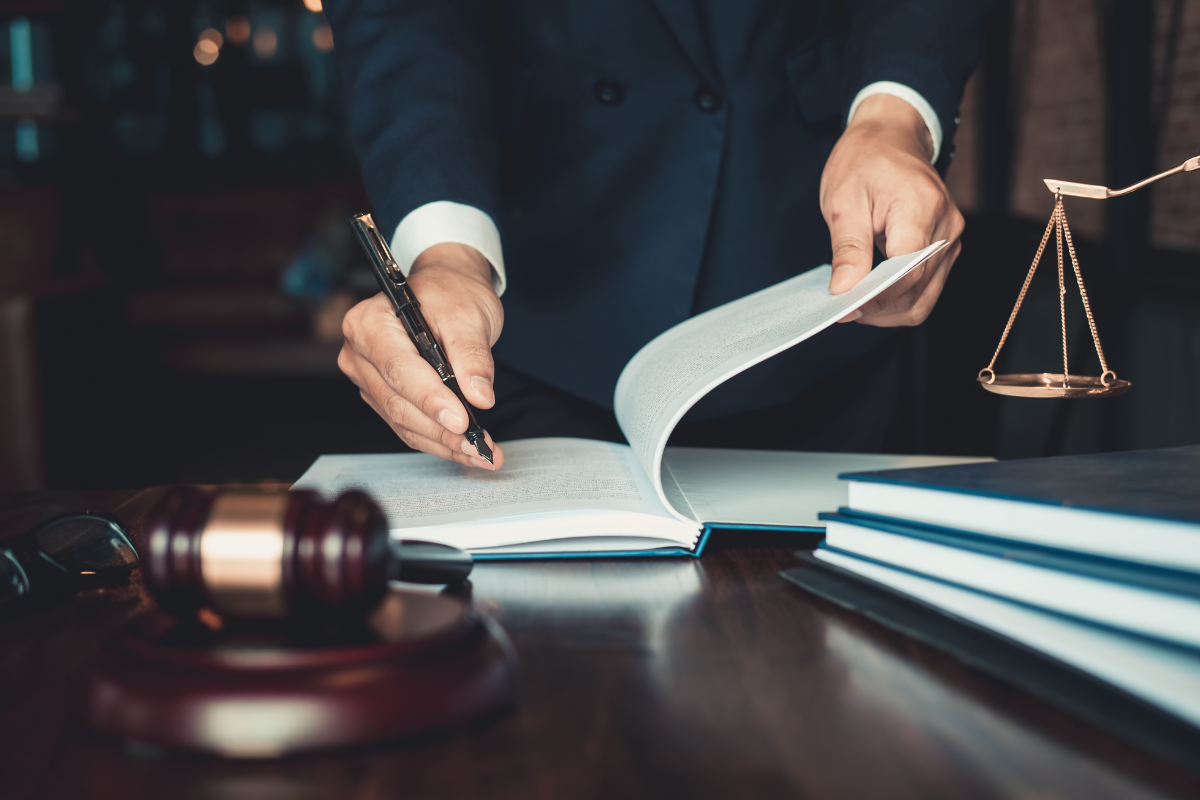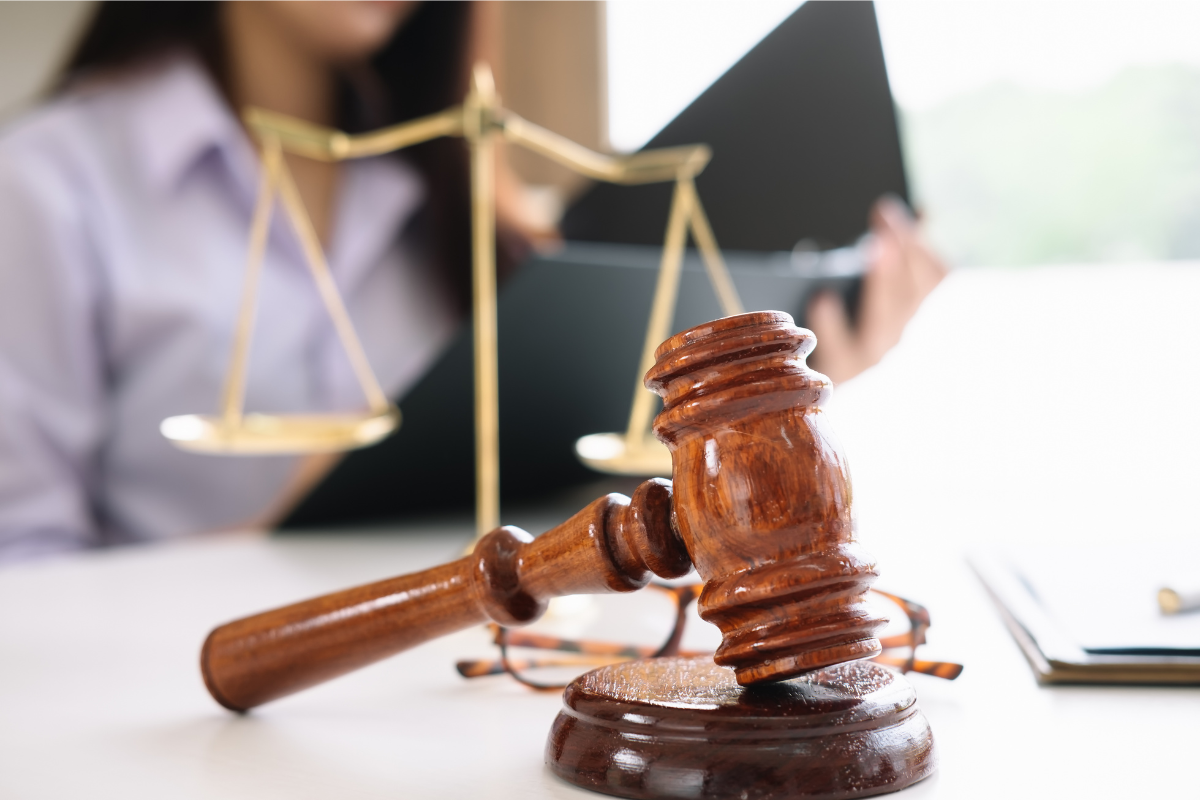
Understanding Criminal Defense Strategies: Key Factors To Consider When Facing Legal Charges
Posts by Alan TaylorNovember 14, 2023
Imagine you’re in the middle of a chess game. The stakes are high, every move is critical, and your opponent is formidable.
In this scenario, you’re not just playing for fun; it’s your life on the line, or at least your freedom.
This is what facing legal charges can feel like. Understanding criminal defense strategies is akin to learning the rules of chess, knowing when to advance or retreat, and mastering an arsenal of tactical maneuvers.
It’s about familiarizing yourself with your rights as an accused person, exploring common types of legal defenses that could potentially turn the tide in your favor, and appreciating the role of defense lawyers in navigating these treacherous waters.
From case preparations and trials to post-trial considerations and appeals, each step holds key factors that can significantly influence the outcome.
So let’s delve into this complex world together because knowledge isn’t just power; it might be your saving grace too.
Exploring Legal Strategies In Car Accident Cases
When dealing with legal charges from a car accident, it’s essential to understand the various defense strategies that can be employed.
A strong defense often hinges on demonstrating a lack of negligence or disproving the alleged fault.
Gathering concrete evidence, such as eyewitness accounts and traffic surveillance, is critical in building a robust case.
It’s also important to consider the role of external factors, such as road conditions or mechanical failures, in the incident.
For those facing such situations in California, Legal Finders offers a gateway to top-rated legal assistance.

The Importance Of A Tailored Legal Approach
Every legal case, especially those involving car accidents, is unique and demands a tailored approach.
Understanding the specifics of your case, from the nature of the accident to the laws in your jurisdiction, is crucial.
A personalized legal strategy not only addresses the specifics of your situation but also anticipates potential challenges.
This approach includes a thorough analysis of all available evidence and a clear understanding of legal precedents. A well-crafted defense strategy can significantly influence the outcome of your case.
Navigating The Complexities Of Legal Proceedings
Navigating the legal system can be daunting, especially for those unfamiliar with legal procedures.
It’s important to understand the process, from filing legal motions to engaging in courtroom proceedings.
Effective communication with your legal team is key to staying informed and making timely decisions.
Preparation for potential cross-examinations and witness testimonies is also crucial. A comprehensive understanding of these processes can greatly impact the effectiveness of your defense.
The Role Of Expert Witnesses In Legal Defense
In many legal cases, especially those involving technical details like car accidents, the testimony of expert witnesses can be invaluable.
These experts can provide insights into accident reconstruction, mechanical faults, or medical implications of injuries sustained.
Their objective analysis can lend significant weight to your defense, challenging the prosecution’s narrative.
Selecting the right expert witness requires careful consideration of their expertise and relevance to your case.
Understanding And Mitigating Legal Risks
Understanding and mitigating legal risks is a critical aspect of any defense strategy. This involves assessing potential liabilities and preparing for various legal scenarios.
Being proactive in addressing legal challenges can prevent complications down the line. It’s also important to be aware of the long-term implications of legal decisions, including their impact on personal and professional life.
A well-thought-out strategy, considering all potential risks and outcomes, is essential for a successful legal defense.

Leveraging Legal Resources For A Strong Defense
In the realm of legal defense, especially in cases involving car accidents, leveraging available legal resources is crucial.
Accessing comprehensive legal databases for relevant case law, utilizing advanced technological tools for evidence analysis, and engaging in thorough legal research are key steps.
A well-informed defense strategy benefits greatly from an understanding of historical legal outcomes and current judicial trends.
Collaboration with a legal team that brings diverse expertise and perspectives can significantly enhance the defense approach.
This comprehensive utilization of resources ensures a robust and well-prepared legal defense, essential for navigating complex legal challenges.
Deciphering The Basics Of Law
In order to successfully navigate your legal predicament, it’s crucial that you first decipher the basics of the law.
Understanding the structure and functions of the court system can help you make sense of what’s happening around you.
Start by familiarizing yourself with key legal terms often used in criminal defense cases.
This includes ‘defendant,’ which refers to the person accused; ‘prosecutor,’ who represents the government; and ‘burden of proof,’ meaning evidence must be substantial enough to prove guilt.
Acquire knowledge about how a trial works, from arraignment to verdict. It’s important because this process will determine whether or not you’re guilty as charged.
Now that you are equipped with this basic understanding, next up is learning more about your rights and protections as an accused individual.

Rights And Protections Of The Accused
Like a shield against the onslaught of accusations, your rights and protections serve as your first line of defense on the battlefield of the law. It’s crucial to fully grasp these elements when facing legal charges.
You’re entitled to certain constitutional safeguards, such as the right to remain silent and not incriminate yourself, a principle rooted in the Fifth Amendment.
Additionally, you’re guaranteed counsel, per the Sixth Amendment, who can advise on all matters relating to your case.
Understanding these rights isn’t just about knowing what they are; it’s about appreciating how they can shape your defense strategy.
With this knowledge, it becomes easier for you or your lawyer to navigate through the intricacies of criminal law.
Now let’s delve into common types of legal defenses that could turn around your situation.
Common Types Of Legal Defenses
Let’s dive right in and explore some common types of legal defenses that could potentially turn the tide in your favor. These strategies can be complex, depending on the specific details of your case.
- Insanity Defense: This hinges on proving that you were mentally unstable during the crime and thus lacked the ability to differentiate right from wrong. It’s often difficult to establish and carries a risk as it might result in involuntary commitment to a mental institution.
- Alibi: This involves proving you were somewhere else when the crime happened. Solid evidence, like CCTV footage or credible witnesses, is usually needed.
- Self-defense: You admit committing the act but argue it was necessary for protecting yourself or others. It requires demonstrating that a clear threat existed.
Knowing these defenses is critical, yet effective application lies largely with your attorney, whose role we’ll delve into next.
Role Of The Defense Attorney
Navigating the complex world of law, your attorney serves as your guide, championing your case and utilizing their expertise to apply legal defenses that could potentially swing the verdict in your favor.

They don’t just argue on your behalf; they also craft a strategy tailored to your situation.
This involves analyzing the evidence, interviewing witnesses, and gathering facts to strengthen your defense.
Your attorney is also responsible for negotiating plea bargains if it’s in your best interest. They’ll inform you about potential penalties or rewards for accepting such deals.
It’s not an easy job, but it’s their commitment to safeguarding justice. Understanding the role of a defense attorney sets the stage for delving into how they prepare for court proceedings and trials.
Case Preparation And Trials
When you’re preparing for court proceedings and trials, it’s a bit like gearing up for a championship game: every detail matters, every move must be calculated, and the right approach can make all the difference.
Your defense team will:
- Develop a strategic plan by:
- Scrutinizing the prosecution’s evidence
- Identifying potential weaknesses in their case
- Prepare compelling arguments by:
- Gathering substantial evidence
- Harnessing expert testimony, where applicable
- Conduct rigorous cross-examinations to:
- Challenge the credibility of witnesses.
- Counter-damaging testimonies
This meticulous groundwork fortifies your defense, potentially influencing trial outcomes favorably.
Yet remember, even if the verdict initially seems unfavorable, there are still legal avenues to challenge it.
Now let’s explore what happens after the trial—post-trial considerations and appeals.
Post-Trial Considerations And Appeals
So, you’ve had your day in court, but what if things didn’t go as planned?

It’s essential to know that a conviction isn’t always the end of the line. There are post-trial considerations and appeal options you can explore.
After a trial, it’s crucial to review the case thoroughly with your defense attorney. You should discuss any potential errors or oversights that occurred during the proceedings.
If there were significant legal mistakes made by the prosecution or judge, these could form grounds for an appeal.
Filing an appeal is a complex process requiring expert knowledge of legal procedures and standards.
It’s not about retrying your case; instead, it focuses on identifying judicial errors affecting the outcome. Remember, choosing experienced counsel skilled in appeals is paramount at this stage.
Conclusion
Facing legal charges? You’re not alone. Understanding the law’s complexities, along with your rights and protections, is daunting but critical.
From grasping common defenses to appreciating your attorney’s role, it’s a lot to handle.
Case preparations, trials, and even post-trial considerations can be overwhelming. But remember, juxtaposing these challenges with tailored strategies can yield effective results.
Stay informed, stay resilient, and always seek expert advice when navigating these murky legal waters.
